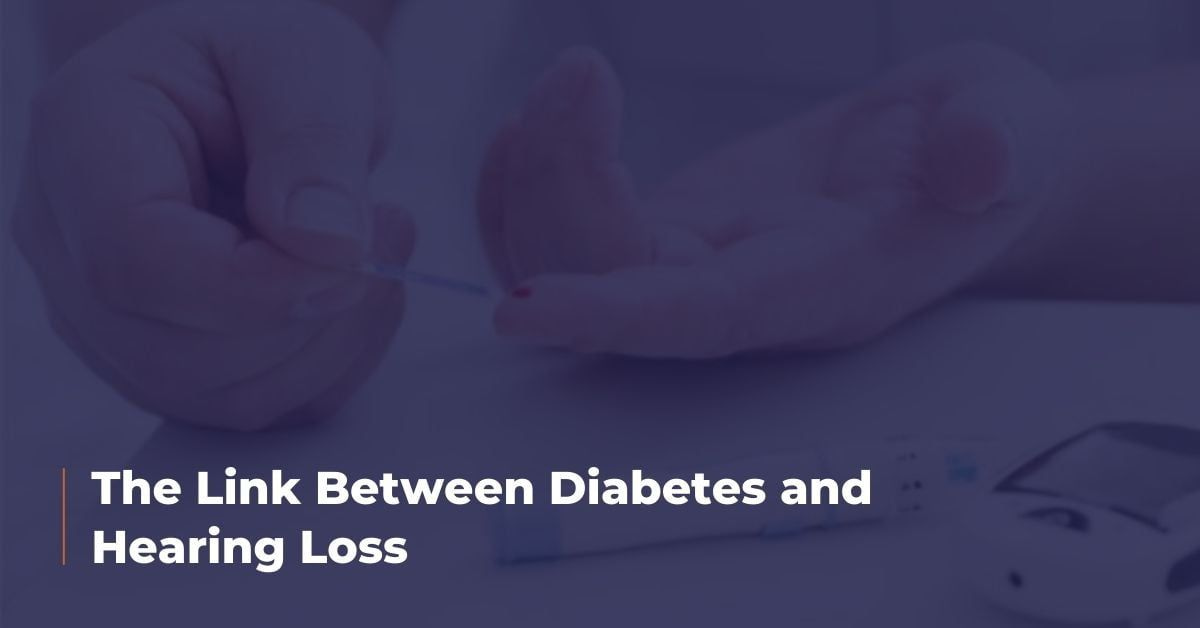Diabetes and hearing loss are two of the most common health concerns in Australia and research has shown that there is a link between these two conditions. Did you know that if you have diabetes, you are twice as likely to acquire a hearing loss compared to those without diabetes?
What is Diabetes?
Diabetes is a serious and complex condition that stops the body from maintaining healthy levels of glucose in the blood. Glucose is a form of sugar in the blood that gives the body energy. Instead of glucose being turned into energy to fuel the body, the glucose stays in the blood which results in high blood sugar (or glucose) levels.
There are three types of diabetes; type 1, type 2 and gestational diabetes – all of those can have a negative effect on the hearing and can cause hearing loss. Often it is a sudden hearing loss that develops quickly, and it can affect anyone with diabetes, regardless of age. It is important to remember that this risk of hearing loss is not restricted to any age group or only those exposed to loud noisy environments.
How Does Diabetes Effect Your Hearing?
Investigations into the link between hearing loss and diabetes explain that the high blood sugar levels people experience with diabetes can cause damage to the small hair cells in the inner ear. The tiny hair cells in the inner ear require a good blood circulation to operate at their best. These cells translate the noise that our ears collect into electrical impulses that need to be interpreted by the brain to recognise the sound. So, when blood cells and the blood supply area affected in the inner ear, the hair cells in our inner ears are not working optimally. These hair cells do not regenerate and damage to them is permanent. This causes a sensorineural hearing loss which cannot be reversed.
What Can Be Done?
It is important for every person to have their hearing checked regularly. Although, it is particularly important to have annual hearing tests if you have diabetes. This will allow hearing care professionals to monitor the function of these tiny hair cells and ensure action is taken as soon as required.
If there is damage detected, the individual may find that they cannot hear well in noise or that they are struggling to have conversations when there is background noise. Also, people often report that are straining to hear and concentrating a lot more when listening to people speak. This resulting hearing loss may require devices such as hearing aids or assistive listening devices.
Although hearing loss caused by diabetes cannot be reversed, steps can be taken to prevent this hearing loss from developing. The most important component to protecting your hearing with diabetes is living a healthy lifestyle. It is crucial that you stay on top of your medications and treatment plans, following the directions of your health care providers closely. It is important to measure the blood sugar regularly and maintain a good average level of blood sugar. Exercise to keep fit and strong is often recommended by medical professionals.
At EAR STUDIO, we assess the hearing of any person over 3 years of age. If you know you have diabetes or have a strong family history of diabetes, it is important that you have a hearing test at a clinic like EAR STUDIO. It is then vital that you regularly check you hearing each year to ensure this hearing level stays stable each year. At EAR STUDIO we can compare your hearing test results each year to observe any changes to your hearing over the years. If you would like to learn more or book a hearing assessment, please call EAR STUDIO on (02) 9159 6122.


